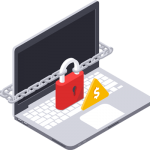There doesn’t have to be a flu pandemic for Health Science employees to remember to protect their health and safety while on the job. Every day we face health risks in the workplace, whether it’s infection, heavy lifting, repetitive motion, or plain old stress.
I might only be an technical person, but I would like to remind you of some common sense tips you can use every day to stay healthy at work.
First, let’s take a look at your personal workspace. Being tied to a desk has its own health risks, and if you are constantly sitting, typing, or mouse-clicking, you could be in for an array of aches and pains. At the very least, make sure your chair, your keyboard, your mouse, and your monitor are positioned for your greatest comfort.
There is little or no skills at the university to provide workplace health or ergonomics advise, but be sure to take advantage of it and request ergonomically designed equipment for your particular needs. It might not seem like a big change, but over time, those little adjustments can greatly reduce physical strain. In addition to optimizing your physical environment, remember to get up every few minutes to stretch, walk around, and rest your eyes. Budget constraints or a scrooge for a department head should never stop you from requesting equipment that will keep you healthy and productive. Remember “Goedkoop is duurkoop” and in the end the university will end up paying for not looking after the occupational health of its employees.
Lastly, unless you work in a lab, don’t let your workspace become a breading ground for germs, insects, or other health hazards. You might not have that much control over others’ hygiene, but try to keep your own equipment and workspace reasonably clean. Alcohol swabs or a spray bottle with some form of disinfectant will help keep your work area clean.
A bit of Dettol mixed with water in a spray bottle can go a long way to keeping your area germ free.
Ensure your rubbish bins are kept clean of food scraps, used tissues and at least have some form of cover to prevent flies and other insects from breeding.
Furthermore, if you have or have recently had a cold, periodically wipe down your monitor, keyboard, and phone. And, use tissues and dispose of them properly.
Everyone who works with computers knows how dirty PCs and components can get, particularly keyboards and mice – and we have noticed in the FHSCUA (GERGA) that there are a lot of hygienically-challenged individuals out there.
Since germs can live on surfaces for anywhere from a few minutes to several hours, make sure you regularly wash your hands or use liberal applications of hand sanitizers (with at least 60% alcohol). This will help keep you healthy as you travel around the cube farm or from office to office, touching potentially infected keyboards, desks, and other equipment.
Dis-Chem and Clicks sell hygienic handwash or “waterless” hand sanitizer in handy bottles to keep on your desk.
Most importantly, avoid touching your face or eyes, until you’ve had a chance to wash or disinfect them.
Keeping yourself healthy and safe at work is mostly common sense, but we tend to get so busy and stressed out that we sometimes forget to take the basic precautions.
Remind yourself that no matter how busy you are – if you get sick or become injured, you’ll only make things worse. This also goes for those times when you realize you’re already ill. If you are – stay home and avoid spreading it to more of your co-workers. You’ll recover more quickly and do everyone in the office a big favour!
These aren’t the only health risks for university workers – after all, we frequently have to negotiate tight spaces, lift and carry heavy equipment, and work with electricity or other harmful materials. But the most common culprits are also the most mundane, so always be on the alert.
Perhaps this posting is not what you might consider an e-Learning matter, but I hope you see its benefit for you as a university employee.
Keep healthy and happy,
David Wiles









